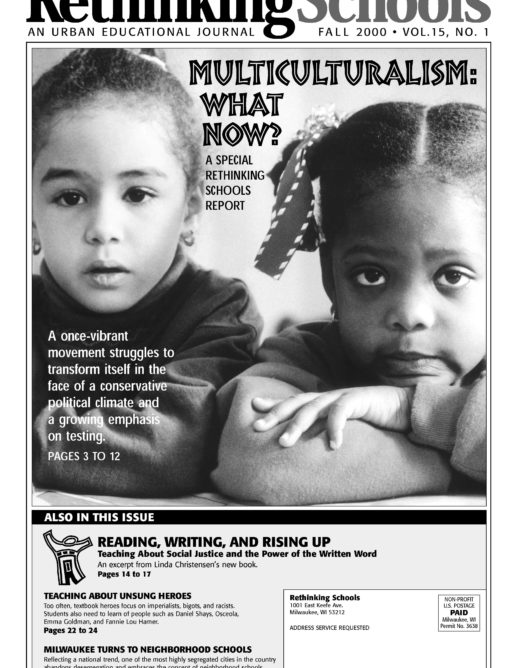Preview of Article:
Embracing Cross-Racial Dialogue
Some people say there is too much talk about race and racism inthe United States. I say that there is not enough. In recent years,news headlines have highlighted the pervasiveness of the problem.There have been race riots in Los Angeles and St. Petersburg,Fla. A 13-year-old Black boy was beaten into a coma by white youthswho caught him riding his bicycle in their Chicago neighborhood.Anti-immigrant legislation in California has led to the publicharassment of Latino citizens. Anti-Asian violence has increaseddramatically. Precipitated by the damaging publicity incurredby the release of tape recordings in which Texaco officials usedracial slurs to describe Black employees, Texaco agreed to pay$176.1 million to settle a race discrimination lawsuit, the largestsuch settlement in history. Carl Rowan, a respected Black journalist,authored a book titled The Coming Race War in America: A Wake-Up Call in which he warns of the growing threat of white supremacistmilitia groups plotting to ignite racial conflict.
What is happening here? We need to continually break the silenceabout racism whenever we can. We need to talk about it at home,at school, in our houses of worship, in our workplaces, in ourcommunity groups. But talk does not mean idle chatter. It meansmeaningful, productive dialogue to raise consciousness and leadto effective action and social change. But how do we start? Thisis the question my students ask me. “How do I engage in meaningfuldialogue about racial issues? How do I get past my fear? How doI get past my anger? Am I willing to take the risk of speakingup? Can I trust that there will be others to listen and supportme? Will it make a difference anyway? Is it worth the effort?”
We all have a sphere of influence. Each of us needs to find ourown sources of courage so that we will begin to speak. There aremany problems to address, and we cannot avoid them indefinitely.We cannot continue to be silent. We must begin to speak, knowingthat words alone are insufficient. But I have seen that meaningfuldialogue can lead to effective action. Change is possible. I remainhopeful.
Fall 2000
[% INCLUDE /zglobl/subscribe.htm %]
CONTENTS
Vol. 15, No. 1

